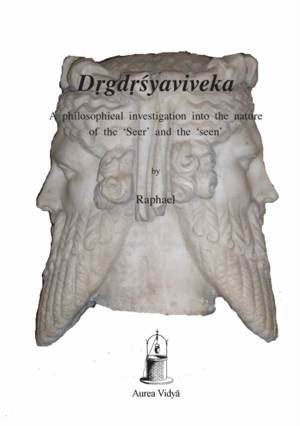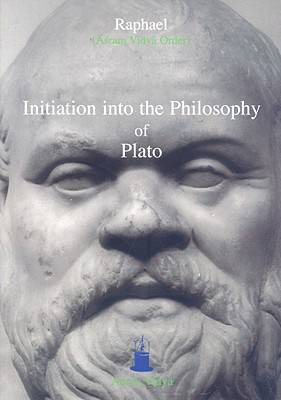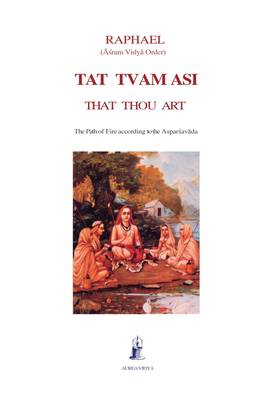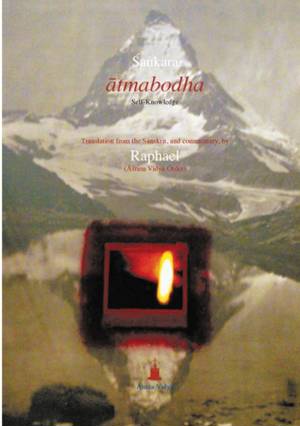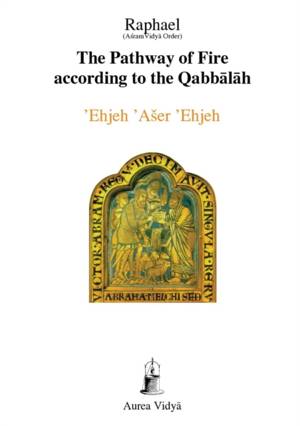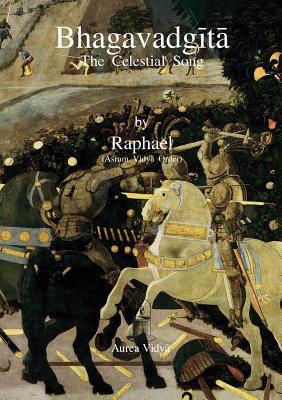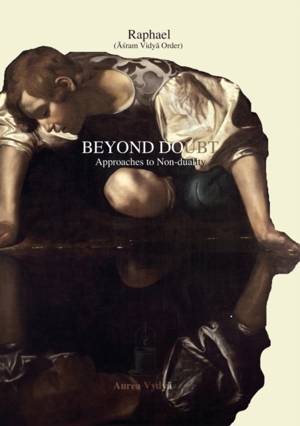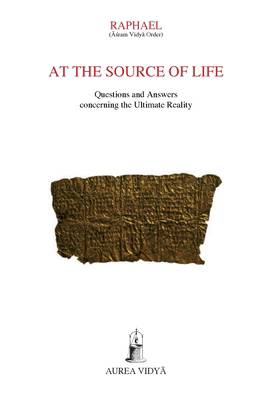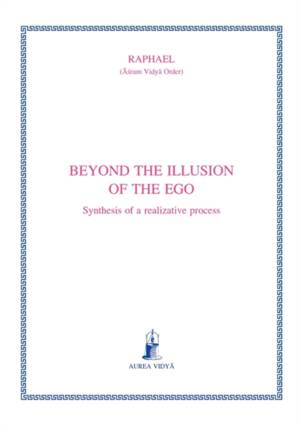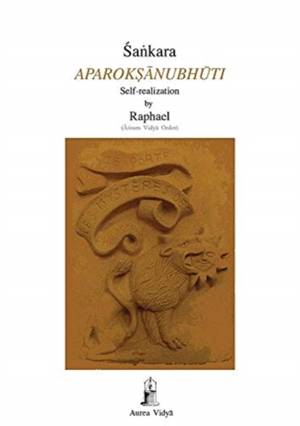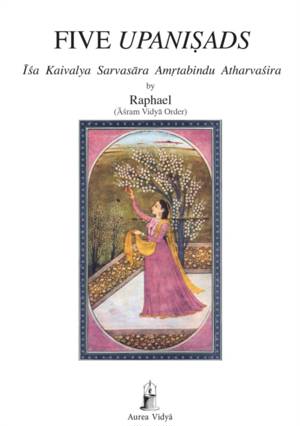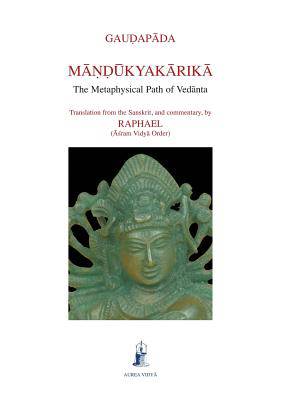
- Retrait gratuit dans votre magasin Club
- 7.000.000 titres dans notre catalogue
- Payer en toute sécurité
- Toujours un magasin près de chez vous
- Retrait gratuit dans votre magasin Club
- 7.000.0000 titres dans notre catalogue
- Payer en toute sécurité
- Toujours un magasin près de chez vous
-
Drgdrsyaviveka
Śaṅkara
- Livre broché | Anglais | Aurea Vidya Collection | n° 10
- The Author and the Editor invite us to Discern (viveka) between the Seer and the seen, between àtman (Self) and non-àtman (non-Self), between Infinite... Savoir plus
26,45 €Livraison 2 à 3 semaines26,45 €Livraison 2 à 3 semaines -
Initiation Into the Philosophy of Plato
(Āśram Vidyā Order) Raphael
- Livre broché | Anglais | Aurea Vidya Collection | n° 8
- PLATO is an exponent in the West of the ancient Tradition that goes back to Orpheus, and he is regarded as the father of Western Philosophy. In the st... Savoir plus
28,95 €Livraison 2 à 3 semaines28,95 €Livraison 2 à 3 semaines -
The Science of Love
(Āśram Vidyā Order) Raphael
- Livre broché | Anglais | Aurea Vidya Collection | n° 12
- In 'The Science of Love' RAPHAEL takes into consideration the human being in its totality as constituted therefore by body, Soul and Spirit, and exami... Savoir plus
24,45 €Livraison 2 à 3 semaines24,45 €Livraison 2 à 3 semaines -
Tat Tvam Asi, That Thou Art
(Āśram Vidyā Order) Raphael
- Livre broché | Anglais | Aurea Vidya Collection | n° 4
- "Tat tvam asi" (That thou art) is the most profound message of the Upanisads and constitutes the essence and the synthesis of the Advaita Vedanta and ... Savoir plus
27,95 €Livraison 1 à 4 semaines27,95 €Livraison 1 à 4 semaines -
Atmabodha
Śaṅkara
- Livre broché | Anglais | Aurea Vidya Collection | n° 7
- ATMABODHA (Self-Knowledge) is a deeply explanatory text on the essence of the Advaita Vedanta Teaching. Shankara addresses those who have purified the... Savoir plus
24,95 €Livraison 2 à 3 semaines24,95 €Livraison 2 à 3 semaines -
The Pathway of Fire According to the Qabbalah
(Āśram Vidyā Order) Raphael
- Livre broché | Anglais | Aurea Vidya Collection | n° 14
- This book is not an essay on the Qabbalah nor a historical study on its origins, but a synthetic presentation in the form of sutra-aphorisms in order ... Savoir plus
24,95 €Livraison 2 à 3 semaines24,95 €Livraison 2 à 3 semaines -
Bhagavadgita
- Livre broché | Anglais | Aurea Vidya Collection | n° 13
- The Bhagavadgita belongs to the VI book of the Mahabharata, the great Indian epic attributed to the legendary Vyasa. It is a poetic and philosophical ... Savoir plus
27,95 €Livraison sous 1 à 4 semaines27,95 €Livraison sous 1 à 4 semaines -
Beyond Doubt
(Āśram Vidyā Order) Raphael
- Livre broché | Anglais | Aurea Vidya Collection | n° 16
- This writing offers a series of dialogues between RAPHAEL and a group of people who are spured by a lack of satisfaction in living, and experience a n... Savoir plus
27,45 €Livraison 2 à 3 semaines27,45 €Livraison 2 à 3 semaines -
At the Source of Life
(Āśram Vidyā Order) Raphael
- Livre broché | Anglais | Aurea Vidya Collection | n° 2
- The Source of Life is presented in dialogue form. With an ability akin to Socrates' maieutic art, Raphael forces the inquirer to delve into himself un... Savoir plus
20,95 €Livraison sous 1 à 4 semaines20,95 €Livraison sous 1 à 4 semaines -
Beyond the illusion of the ego
(Āśram Vidyā Order) Raphael
- Livre broché | Anglais | Aurea Vidya Collection | n° 3
- What 'Beyond the Illusion of the ego' suggests is an operational synthesis that may be taken as the basic scheme for any possible realizative Way. But... Savoir plus
15,45 €Livraison 2 à 3 semaines15,45 €Livraison 2 à 3 semaines -
Aparoksanubhuti
Śaṅkara
- Livre broché | Anglais | Aurea Vidya Collection | n° 18
- Aparoksanubhuti belongs to the series of works by Sankara known as prakaraṇagrantha , i.e., "specific treaties" in verse and prose concerning basic po... Savoir plus
23,95 €Livraison sous 1 à 4 semaines23,95 €Livraison sous 1 à 4 semaines -
On the Order of Nature
Parmenides
- Livre broché | Anglais | Aurea Vidya Collection | n° 11
- With PARMENIDES began what is called, in more specific terms, true Philosophy. The Eleatic, and his Poem, constitute a "beacon" whose light illumined ... Savoir plus
23,45 €Livraison sous 1 à 4 semaines23,45 €Livraison sous 1 à 4 semaines -
Orphism and the Initiatory Tradition
(Āśram Vidyā Order) Raphael
- Livre broché | Anglais | Aurea Vidya Collection | n° 6
- ORPHEUS, Pythagoras, Parmenides, Plato, Plotinus, etc., are not the same as a Locke, a Hume or a Fichte or such, even though the latter ones are very ... Savoir plus
20,95 €Livraison 1 à 2 semaines20,95 €Livraison 1 à 2 semaines -
Five Upanisads
- Livre broché | Anglais | Aurea Vidya Collection | n° 20
- The Upaniṣads are an integral part of Vedas, they represent a branch of the primordial Tradition and constitute the essence of Vedanta itself. The exp... Savoir plus
22,45 €Livraison sous 1 à 4 semaines22,45 €Livraison sous 1 à 4 semaines -
Mandukyakarika
Gauḍapāda
- Livre broché | Anglais | Aurea Vidya Collection | n° 5
- The Mandukya Upanishad is part of the Atharva Veda and belongs to a relatively remote period. Though short, it sums up the entire metaphysical vision ... Savoir plus
30,95 €Livraison 2 à 3 semaines30,95 €Livraison 2 à 3 semaines
15 sur 15 résultat(s) affiché(s)





